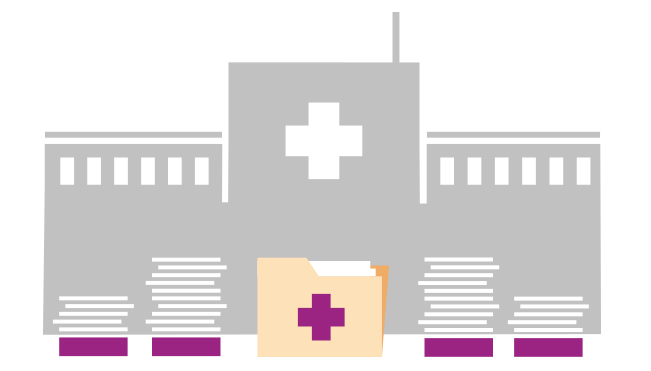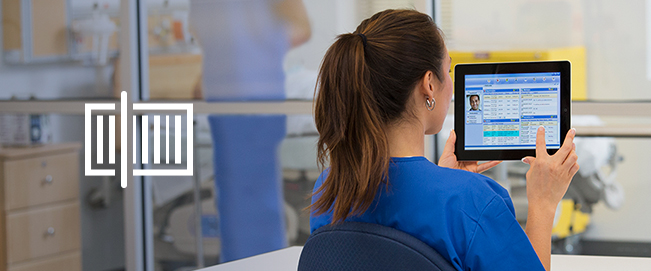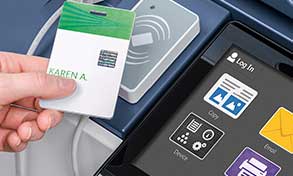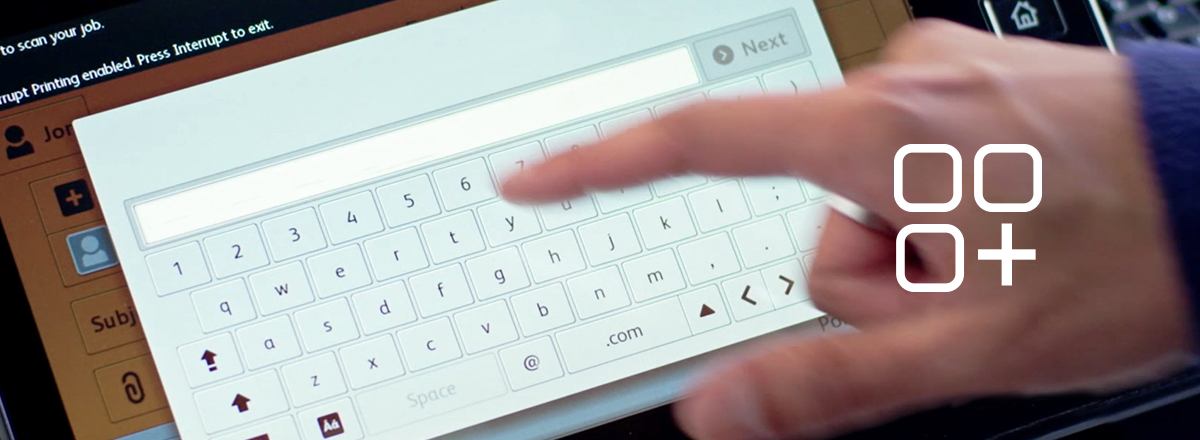
Creating E-Documents
How a hospital developed an EMR system to improve patient care

Challenge
When patients arrived with hard-copy documents, this mid-size hospital needed a way to transform all that paper to digital format, and make the move to an electronic medical records (EMR) system.

Solution
The hospital now scans all patient documents at a Xerox® ConnectKey® Technology-enabled MFP to digitize them, then stores those electronic documents in a central cloud-based repository. EMRs are accessed easily and immediately, and updated with new information, keeping all patient electronic records current and confidential.
In Action

1. Information at the ready
After swiping her security ID badge at the ConnectKey® Technology-enabled MFP to comply with security and privacy requirements, Nurse Karen browses through her patient’s ID folder.

2. Easily updatable
Karen taps “Health Records” on the touchscreen and scans the patient’s new medical information into his electronic records.
EMRs are accessed easily and immediately, and updated with new information, keeping all patient electronic records current and confidential.

3. Adaptable for changing needs
When the patient asks for a printout of his updated record, Karen prints it out for him.

4. Business-wide availability
And when the physician considers whether to modify the patient’s prescription, she can simply pull up and view the patient’s updated charts.
Additional Resources
ConnectKey Technology in Action

Print from the cloud
See how Robert downloads, scans, prints, shares, and translates docs from his mobile device to the MFP.

Streamline Workflow
Spend less time managing documents using a ConnectKey-enabled MFP and document-management software.

Use apps for tasks
See how a bank replaces time-intensive manual tasks with custom apps that speed processes.